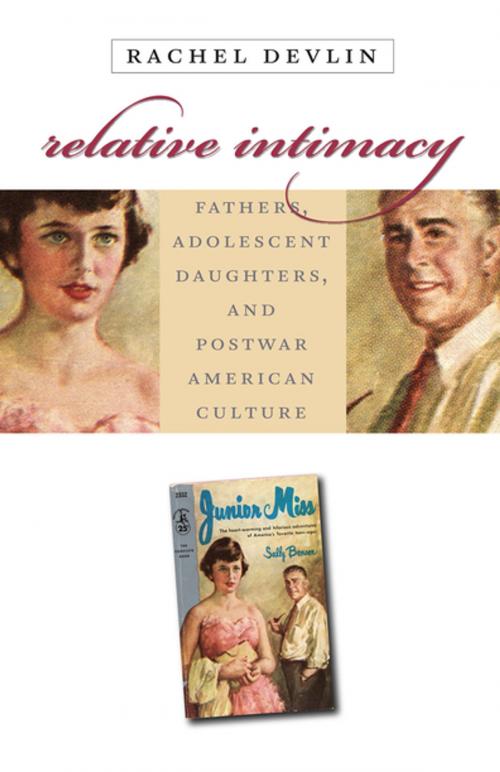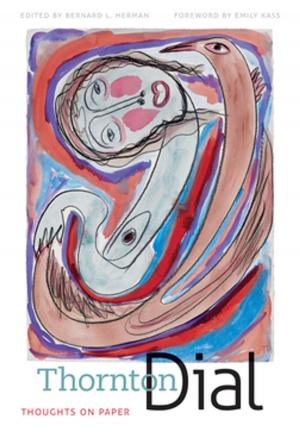Relative Intimacy
Fathers, Adolescent Daughters, and Postwar American Culture
Nonfiction, Social & Cultural Studies, Social Science, Gender Studies, Men&, Women&, History, Americas, United States, 20th Century| Author: | Rachel Devlin | ISBN: | 9780807876329 |
| Publisher: | The University of North Carolina Press | Publication: | March 8, 2006 |
| Imprint: | The University of North Carolina Press | Language: | English |
| Author: | Rachel Devlin |
| ISBN: | 9780807876329 |
| Publisher: | The University of North Carolina Press |
| Publication: | March 8, 2006 |
| Imprint: | The University of North Carolina Press |
| Language: | English |
Celebrated as new consumers and condemned for their growing delinquencies, teenage girls emerged as one of the most visible segments of American society during and after World War II. Contrary to the generally accepted view that teenagers grew more alienated from adults during this period, Rachel Devlin argues that postwar culture fostered a father-daughter relationship characterized by new forms of psychological intimacy and tinged with eroticism.
According to Devlin, psychiatric professionals turned to the Oedipus complex during World War II to explain girls' delinquencies and antisocial acts. Fathers were encouraged to become actively involved in the clothing and makeup choices of their teenage daughters, thus domesticating and keeping under paternal authority their sexual maturation.
In Broadway plays, girls' and women's magazines, and works of literature, fathers often appeared as governing figures in their daughters' sexual coming of age. It became the common sense of the era that adolescent girls were fundamentally motivated by their Oedipal needs, dependent upon paternal sexual approval, and interested in their fathers' romantic lives. As Devlin demonstrates, the pervasiveness of depictions of father-adolescent daughter eroticism on all levels of culture raises questions about the extent of girls' independence in modern American society and the character of fatherhood during America's fabled embrace of domesticity in the 1940s and 1950s.
Celebrated as new consumers and condemned for their growing delinquencies, teenage girls emerged as one of the most visible segments of American society during and after World War II. Contrary to the generally accepted view that teenagers grew more alienated from adults during this period, Rachel Devlin argues that postwar culture fostered a father-daughter relationship characterized by new forms of psychological intimacy and tinged with eroticism.
According to Devlin, psychiatric professionals turned to the Oedipus complex during World War II to explain girls' delinquencies and antisocial acts. Fathers were encouraged to become actively involved in the clothing and makeup choices of their teenage daughters, thus domesticating and keeping under paternal authority their sexual maturation.
In Broadway plays, girls' and women's magazines, and works of literature, fathers often appeared as governing figures in their daughters' sexual coming of age. It became the common sense of the era that adolescent girls were fundamentally motivated by their Oedipal needs, dependent upon paternal sexual approval, and interested in their fathers' romantic lives. As Devlin demonstrates, the pervasiveness of depictions of father-adolescent daughter eroticism on all levels of culture raises questions about the extent of girls' independence in modern American society and the character of fatherhood during America's fabled embrace of domesticity in the 1940s and 1950s.















